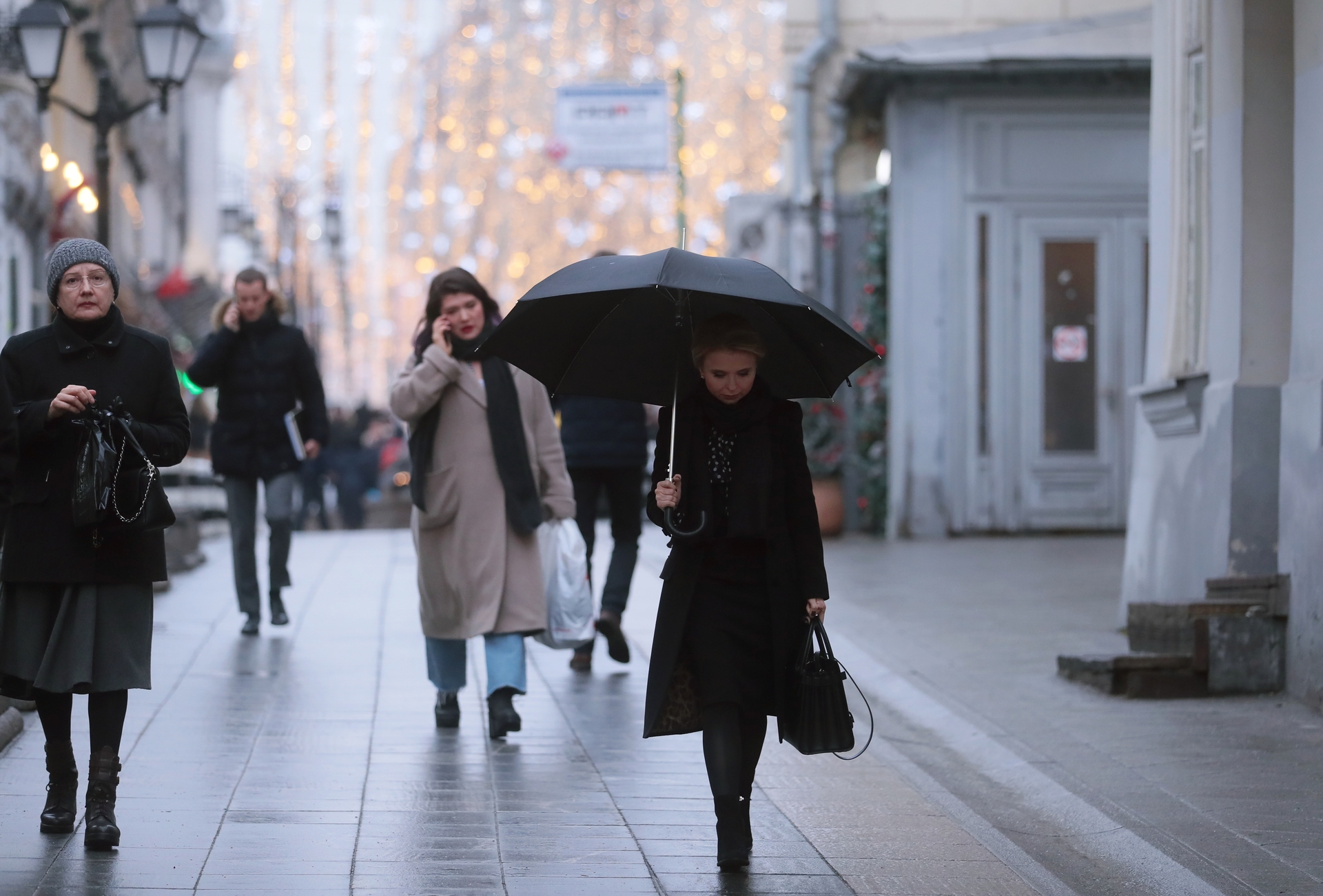Anomalously warm weather will return to Moscow next week. According to Yevgeny Tishkovets, a leading specialist at the Phobos weather center, the peak of cold has been passed and Muscovites will no longer see frost this winter.
“The peak of the cold has already been passed. Winter will back down again. During February 9, a warm atmospheric front will slip and open the way for the Atlantic air, the temperature will begin to rise rapidly. Cloudy weather will remain, purely symbolic snow is possible, ”explained Tishkovec RT.
Nevertheless, according to the weather forecaster, the wind will begin to increase, and gusts will reach 15 m / s.
Cloudy is expected on Monday, February 10, at night in Moscow it will be -1 ...- 3 ° C, during the day +2 ° C. From Tuesday to the end of the week, weather conditions will be approximately the same - it will be cloudy every day, light precipitation in mixed form will fall, and near-zero temperatures are expected.
“The whole week will be marked by the west-east transport of air masses of Atlantic origin. Therefore, mostly cloudy weather awaits Muscovites. From time to time, precipitation of different intensities will occur. The temperature is expected to be near zero. Winter will return to the schedule of one of the warmest in history. We won’t see frosts anymore, ”he concluded.
Tishkovets added that the seven-centimeter snow cover established in Moscow will decrease.
Anatoly Tsygankov, deputy head of the Roshydromet situation center, in an interview with RT also predicted the return of heat to the capital region.
“December, January and the beginning of February were very warm. Instead of 33 centimeters of snow, according to the norm, we have 7-8 centimeters left. From February 7 to 8, it was the coldest night. In the region, the temperature reached -20 ° C. It was only three days cold. Now it is leaving and warmth is returning. A very powerful cyclone comes out and brings warm air to us from the west. Anomalously warm weather is expected next week, 8-10 ° C higher than normal, ”said the weather forecaster.
He added that Muscovites also expect light rainfall in the form of snow turning into rain.
“From the unpleasant you can expect a stronger wind. It will not be very comfortable due to him, ”he said.
- RIA News
- © Vitaly Belousov
Earlier, weather forecasters promised the inhabitants of the European part of Russia the offensive of the so-called pink February. The fact is that in accordance with the long-term forecast of the experts of the Copernicus Climate Change Service (C3S) under the auspices of the European Union, this part of Russia is colored pink on the service forecast cards. According to Copernicus, by February 9, the temperature will still exceed the norm, but not much. Closer to the middle of the month, the thermometer columns will start to rise again, the warmest period is expected on February 10-16.
The head of the Hydrometeorological Center, Roman Vilfand, in an interview with Rossiyskaya Gazeta explained that every year there are more and more abnormal natural phenomena. According to him, this is inevitable and people need to adapt to this.
“There is less and less normal weather, and more and more extreme,” said the weather forecaster.
That is why it turns out that -5 ...- 3 ° C become the lowest rates of the month, he added.
One of the coldest days of the current winter in Moscow was January 31 and February 1, when the average daily temperature was -10.1 ° С. The coldest night since the beginning of winter was Saturday night, February 8th. As the Leading Specialist of the Phobos Weather Center, Mikhail Leus, noted in an interview with RIA Novosti, on February 7, air temperature for the first time approached the climatic norm.
In general, January 2020 was the warmest in the history of meteorological observations in Moscow. Roman Villefand noted that before that the record was set in 2007.
"That's fantastic. I think this happens about once every 150 years ... This is the hottest January for the entire observation period, ”the weather forecast quoted TASS.
According to him, the average monthly temperature for a month exceeded the climatic norm by 9.3 ° С.
It is worth noting that the past January was also the darkest in 20 years. So, with a sunshine rate of 33 hours, this time its duration was only 11 hours.

